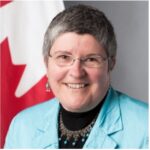
Making Transgresors Pay: Repurposing Sanctioned Assets of Offending Governments
On 2 May 2024, the World Refugee & Migration Council organized a major conference with Chatham House and its Russia-Eurasia and Global Economy and Finance Programmes in London to evaluate and discuss options for repurposing frozen or seized assets to compensate victims of aggression and corruption. Watch the Conference Video *use the

























